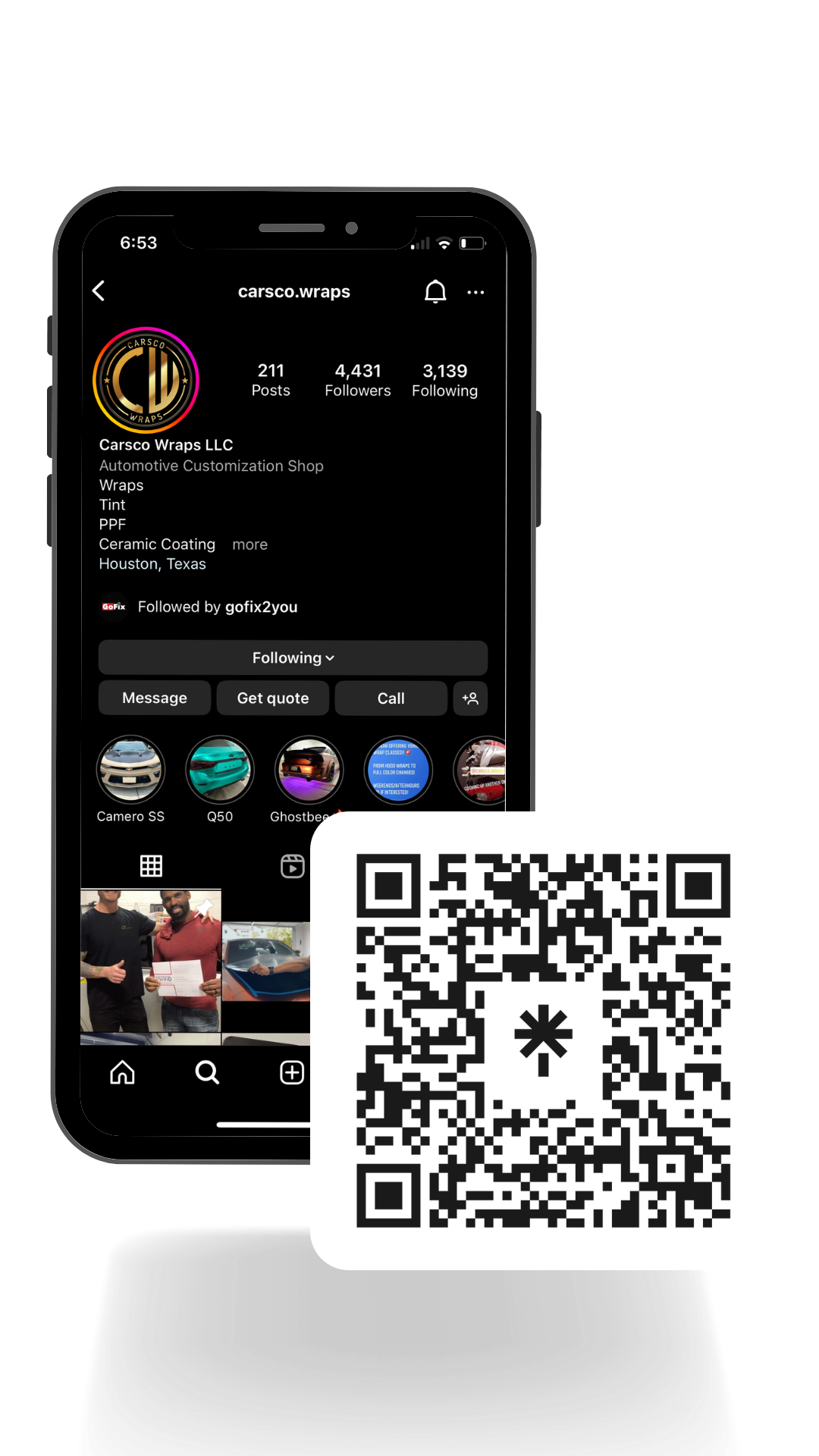Composition: Carbon window tint contains carbon particles that are embedded in the film. These carbon particles provide the tint with its color and some of its heat-rejection properties.
Heat Rejection: Carbon tints are effective at blocking a significant amount of infrared (IR) rays, which helps reduce heat inside the vehicle. While not as heat-resistant as ceramic tints, they still provide good thermal protection.
UV Protection: Carbon tints offer good UV protection, typically blocking around 99% of harmful UV rays. This protection helps prevent sunburn and interior fading.
Appearance: Carbon tints often have a matte or charcoal-black appearance. They can give the windows a sleek and stylish look, which many car owners find appealing.
Clarity and Visibility: Carbon tints do not interfere with electronic devices or signals, making them suitable for modern vehicles. They also have good optical clarity and visibility.
Price: Carbon window tint is generally more affordable than ceramic tint but can be pricier than traditional dyed tints.
Composition: Ceramic window tint is made from ceramic particles that are non-metallic and non-conductive. These ceramic nanoparticles are tiny and evenly distributed throughout the film.
Heat Rejection: Ceramic tints are highly effective at rejecting heat. They block a significant amount of infrared (IR) rays, which are responsible for heat buildup in your vehicle, helping to keep the interior cooler.
UV Protection: Ceramic tints provide excellent UV protection. They can block up to 99% of harmful ultraviolet (UV) rays, which helps protect your skin and prevents interior fading and damage.
Clarity and Visibility: Ceramic tints are known for their optical clarity. They do not interfere with radio signals, GPS, or other electronic devices. They also have a neutral appearance and do not have a shiny or mirrored look.
Durability: Ceramic tints are durable and less prone to fading or changing color over time. They are resistant to bubbling, peeling, and discoloration, making them a long-lasting option.
Price: Ceramic window tint tends to be more expensive than traditional dyed or metallized tints due to its advanced technology and superior performance.
What's Legal In Texas?
- Windshield: Non-reflective tint is allowed on the windshield above the manufacturer's AS-1 line (typically 5 inches) or the top 5 inches, whichever is higher.
- Front Side Windows: Must allow more than 25% of light in.
- Back Side Windows: There are no specific limits for the tint darkness on rear side windows.
- Rear Window: There are no specific limits for the tint darkness on the rear window.
Please note that tint laws can change over time, so it's essential to verify the current regulations with your local authorities or the Texas Department of Public Safety (DPS) for the most up-to-date information. Additionally, some vehicles may have different tinting rules, so it's a good idea to check with local law enforcement or regulatory agencies to ensure compliance with the law.
Keep in mind that there may also be medical exemptions for individuals with certain medical conditions that require increased protection from the sun's UV rays. These exemptions may allow for darker window tint than what is generally allowed by law. Always be sure to adhere to the legal requirements in your area to avoid potential fines or legal issues.
Request Your Estimate Today!
Contact Us
Phone: (989) 909-1111
Email:
Info@carscowraps.com
Visit Us
19005 FM 529
Suite 5D
Cypress, TX 77433
Helpful Links
Services
Join Our Newletter!
Contact Us
Thank you for subscribing to our newsletter!
Please try again later.

